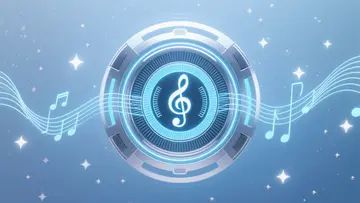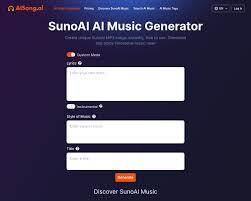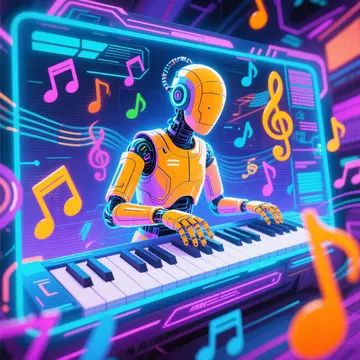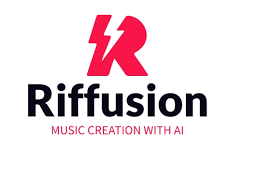Artificial Intelligence is reshaping creative fields, and music is no exception. If you've heard of AI music but wondered, what does AI music sound like?, you're tapping into a question that intrigues both music lovers and tech enthusiasts alike. The reality is, AI music varies widely in style, complexity, and emotional impact, depending on the technology behind it and the intent of its creators.
This article explores what AI music sounds like by analyzing its key characteristics, comparing it to human-made music, and highlighting popular AI music platforms shaping this evolving genre. By the end, you’ll have a nuanced understanding of AI music’s sonic landscape and how it fits into the modern music ecosystem.
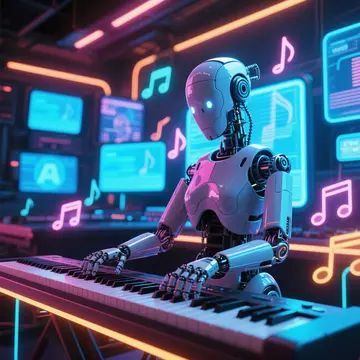
The Core Characteristics of AI Music Sound
At its essence, AI music is created by algorithms trained on vast amounts of audio data. These algorithms mimic compositional techniques, instrument sounds, and sometimes even vocal styles. Here are some key features that define what AI music sounds like:
Precision and Consistency: AI-generated music is often technically flawless. Timing, tuning, and rhythmic patterns are exact, as AI doesn’t make human errors.
Repetitiveness: Some AI compositions tend to repeat patterns or motifs more than typical human compositions, especially when trained on limited datasets.
Unconventional Combinations: AI sometimes produces unexpected harmonies or instrument blends, which can feel fresh or experimental.
Emotional Range: Depending on the model, AI music may lack the nuanced emotional expression that human performers bring, though recent advances have improved this drastically.
Genre Adaptability: AI music can convincingly mimic genres like electronic, pop, classical, or jazz, depending on its training.
Comparing AI Music to Human-Produced Tracks
While AI music is growing more sophisticated, there are noticeable differences when compared to human-produced music:
Human Imperfection vs. AI Precision: Human musicians naturally add subtle imperfections that contribute to emotional warmth. AI music often sounds cleaner but may lack this organic feel.
Improvisation and Emotion: Jazz or live performances have improvisation and emotional spontaneity, which AI struggles to replicate authentically.
Creativity Boundaries: AI generates music based on learned patterns, limiting radical innovation unless guided by human input.
Vocal Realism: AI vocal synthesis has improved, with tools like Synthesizer V and Emvoice One producing realistic singing voices, but the subtlety of human vocals remains challenging.
Real AI Music Examples and Platforms
Understanding what AI music sounds like is easier when you listen to examples from leading AI music generators.
Suno AI
Suno produces AI-generated tracks across genres, from K-pop to lo-fi beats. Its music often sounds polished with catchy melodies but may sometimes feel formulaic when generating repeated beats.
AIVA
AIVA focuses on cinematic and classical AI compositions. Its pieces evoke emotions similar to traditional scores, offering lush orchestration but occasionally lacking human expressiveness in phrasing.
Boomy
Boomy is designed for quick, accessible music creation in genres like EDM and chillwave. The sound quality is decent and appealing for background music, though it might feel less intricate than handcrafted productions.
OpenAI’s Jukebox
Jukebox generates raw audio in multiple genres, including singing, with impressively diverse outputs. However, it is still experimental and often produces artifacts or distortions.
The Evolution of AI Music Sound Quality
From simple MIDI sequences to near-human realism, AI music sound has evolved rapidly. Early AI music sounded mechanical, often confined to synthetic instruments with little variation. Today's AI leverages deep learning, real instrument samples, and advanced synthesis to create tracks that can fool casual listeners.
According to a 2024 report by Musitech Insights, over 60% of listeners found AI-generated music “pleasant and engaging,” and 40% couldn’t reliably distinguish it from human-made music in blind tests.
Common Use Cases Where AI Music Sounds Best
Background music for videos and games: AI’s consistency and genre flexibility make it ideal for non-intrusive soundtracks.
Idea generation for producers: Musicians use AI to generate fresh melodies or chord progressions as starting points.
Personalized playlists: AI can tailor soundscapes to moods or activities more dynamically than traditional radio.
Virtual artists: Combining AI music with avatars creates entirely digital performers appealing to niche audiences.
Frequently Asked Questions
Is AI music always instrumental?
No, AI music increasingly includes vocal synthesis. Tools like Vocaloid and Synthesizer V produce singing voices in multiple languages and styles.
Does AI music sound robotic?
Earlier AI music did. Modern AI uses sample-based synthesis and deep learning, resulting in more natural and expressive sounds.
Can AI music evoke emotions like human music?
To a degree. AI can mimic emotional patterns but may lack the spontaneity and subtlety of human performers.
Is AI music suitable for commercial use?
Yes. Many platforms grant commercial licenses for AI-generated music, enabling use in ads, films, and games.
Conclusion: What Does AI Music Sound Like? It’s a Spectrum of Innovation and Experimentation
AI music doesn’t have one fixed sound; instead, it spans a spectrum from synthetic, repetitive beats to complex, emotionally resonant compositions. While it can’t fully replace the depth of human artistry yet, AI music provides unique creative possibilities, efficient production workflows, and fresh listening experiences.
As technology advances, expect AI music to blend more seamlessly with human creativity, resulting in new genres and collaborative art forms. For now, the sound of AI music offers a fascinating glimpse into the future of sonic innovation.
Learn more about AI MUSIC


